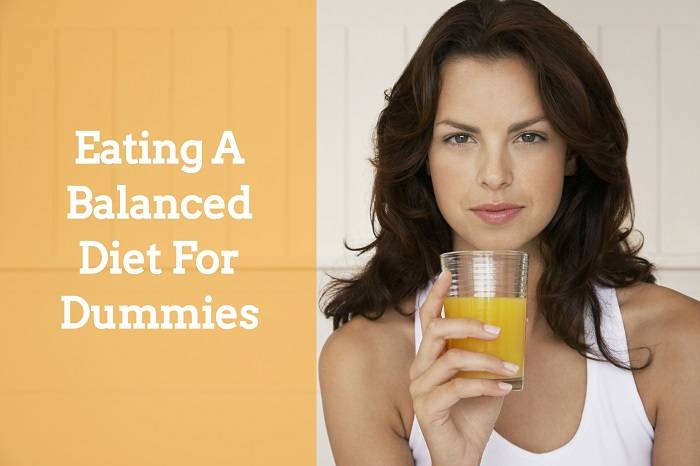Eating A Balanced Diet For Dummies

If you ask any physician or dietician, they will tell you that it is important to have a balanced diet. Having a balanced diet is essential for good health and to get all of the macronutrients (protein, carbohydrates, and fats), vitamins, minerals, and antioxidants you need.
What It Means To Have A Balanced Diet
To have a balanced diet, you need to take a hard look at what you are eating. A balanced diet means that you are eating a wide variety of healthy foods that provide your body with the nutrients it needs, since no one food can supply all of those.
Experts recommend a plate filled with grains, vegetables, fruits, and protein, with vegetables taking most of the space. Dairy is also important as it supplies key nutrients, like vitamin D. calcium and magnesium. To reduce fat and calorie intake choose lower calorie dairy.
Carbohydrates
Complex carbohydrates are foods like whole fruits, whole vegetables, and whole grains. Complex carbohydrates should contain a lot of fiber for digestive health and should allow the system to absorb sugar in the diet slowly rather than quickly.
While you may argue that eating refined sugars is part of a balanced diet, you should avoid these foods. They have a high glycemic index, meaning that they allow for a rapid influx of sugar into the bloodstream. This rapid influx of sugar can create havoc in the system and can lead to diabetes mellitus type 2. Keep your carbohydrates more along the lines of complex carbohydrates that do not result in a rapid influx of sugar from the gastrointestinal tract.
Your complex carbohydrates should involve a wide variety of colorful fruits (in moderation) and vegetables. Look at your plate at every meal to see that it contains highly colored foods that are naturally high in vitamins, minerals, and antioxidants. The food should be in the freshest form possible. Too much cooking of even healthy foods breaks down the vitamins and reduces the healthfulness of the foods you are eating.
Getting Your Protein
A balanced diet also includes healthy choices of protein. You need protein in your diet in order to make enzymes that help in cellular metabolism and to make structural components inside the cells. Eating protein doesn’t always mean eating a lot of meat. There are protein sources in dairy foods, eggs, and even beans and nuts. These protein sources will provide your diet with the protein it needs to get enough amino acids, which are the building blocks of proteins in your system.
Again, take a look at your plate. At least 20 percent of the food on your plate should come from a protein source. This could mean adding an egg to your breakfast, eating a handful of nuts, eating bean soup, or eating lean meats and fish. Remember that a serving size of meat is only 3 ounces of meat so it shouldn’t take up the entire plate. A nice slab of steak is okay occasionally but this doesn’t contribute to eating a balanced diet and it is high in saturated fat and calories.
Adding Healthy Fats To Your Diet
Eating a balanced diet means eating foods that contain healthy fats as well. The healthiest fats are unsaturated fats that come from plant sources. Things like olive oil, flaxseed oil, and coconut oil are healthier for you than the fats found in meats. Use olive oil or another plant oil when cooking and you will get enough healthy fats to make your cells have enough lipids to make and mend cell membranes inside your body.
Variety Is The Spice Of Life
The key to a healthy and well balanced is variety. The USDA’s recommends eating from all 5 food groups to get all the nutrients the body needs, which include fruits, vegetables, dairy, grains, meat, and beans.


